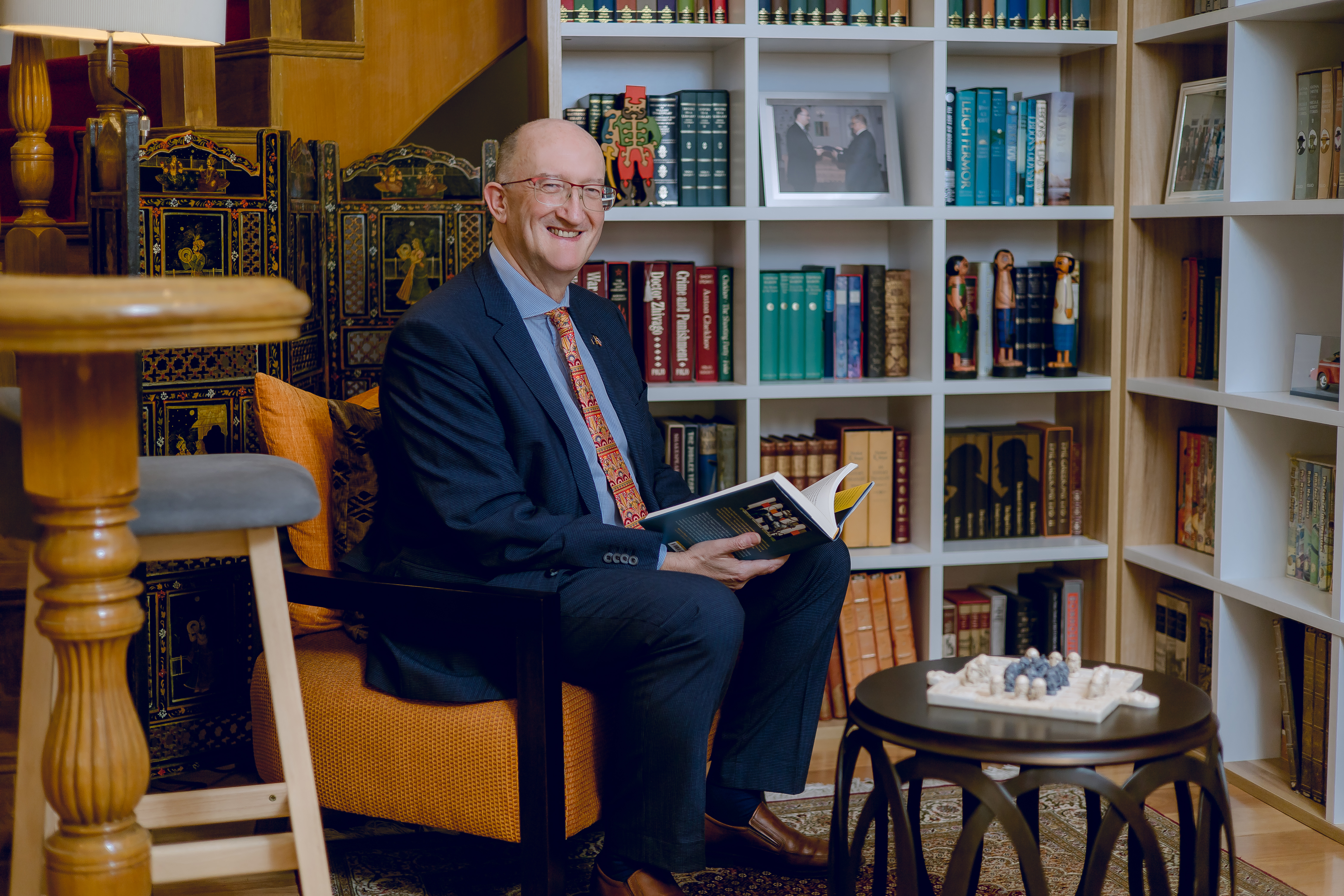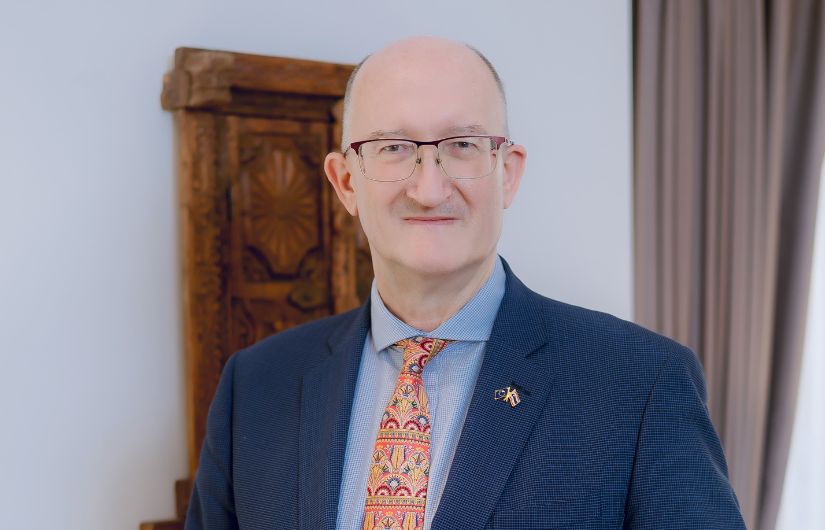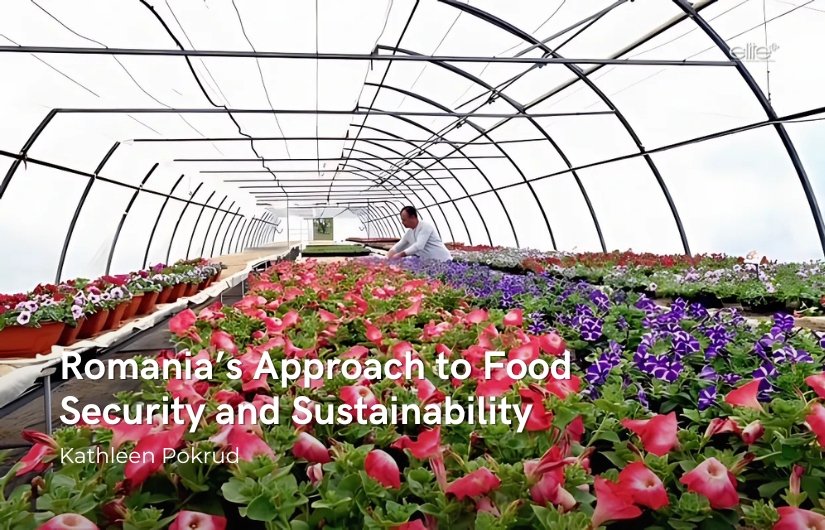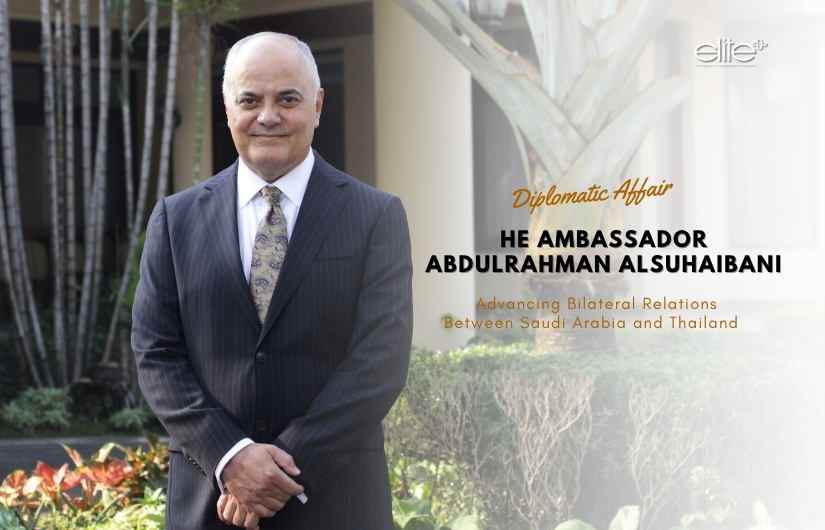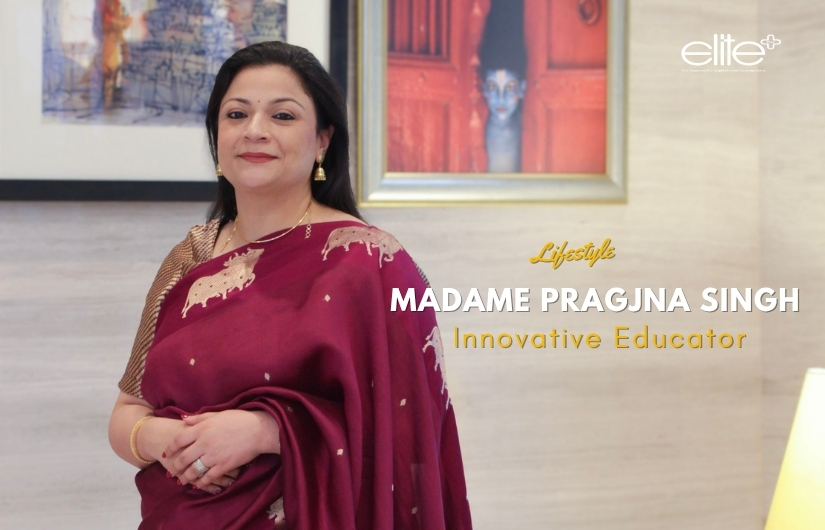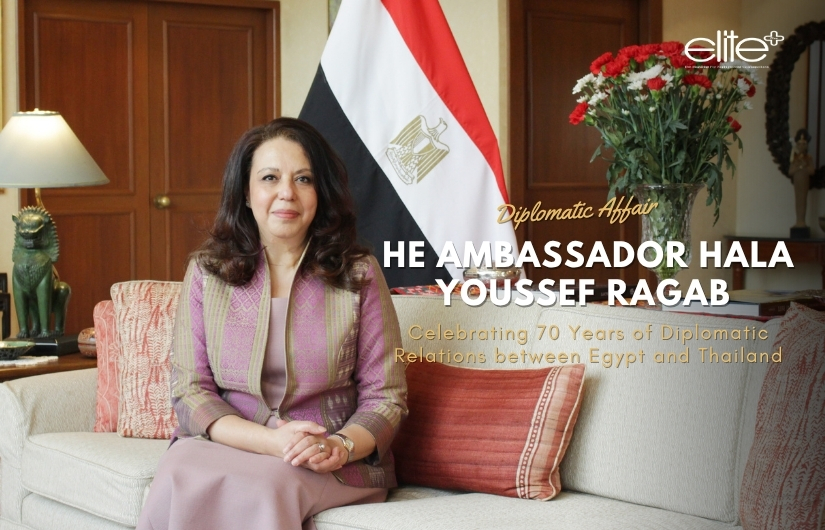HE Mr David Daly: Building Stronger Ties Between the EU and Thailand
The European Union (EU) and the Kingdom of Thailand established diplomatic relations in 1962. Established in 1979, the Delegation of the European Union diplomatic mission to Thailand has as its objective to promote the political and economic relations between Thailand and the EU. HE Mr David Daly, the EU’s ambassador to Thailand, was kind enough to sit down with Elite+ to explain about recent developments of EU-Thailand relations including the Free Trade Agreement negotiations between the EU and Thailand.
Ambassador Daly arrived in Bangkok in 2021 amid the Covid-19 pandemic after serving within the European External Action Service in Brussels and abroad. He has also worked as a trade negotiator with the European Commission to facilitate trade, particularly in textiles and clothing, between various countries in the region and the EU. Prior to joining the European Union in Brussels, he served in the Irish Foreign Service based in Dublin and the Irish Embassy in New Delhi.
Ambassador Daly recalled, “I focused on the EU relations with countries in the western Balkans for many years, namely, Albania, Bosnia, North Macedonia and Croatia. Heading the negotiating team for Croatia's accession to the EU, I was posted to Budapest in the 1990s, which was a fabulous experience. That was also when Hungary started its own accession process to the EU. I was then appointed as the EU Ambassador to Australia and New Zealand, two very important partners for the European Union. Since my postings, we have proceeded to negotiate and conduct FTA negotiations with both countries. Our FTA with New Zealand is already completed while that with Australia is still in the process. I also served as the EU Ambassador to Sri Lanka when the country had a number of political challenges after the civil war during the reconciliation process and rebuilding of the economy.”
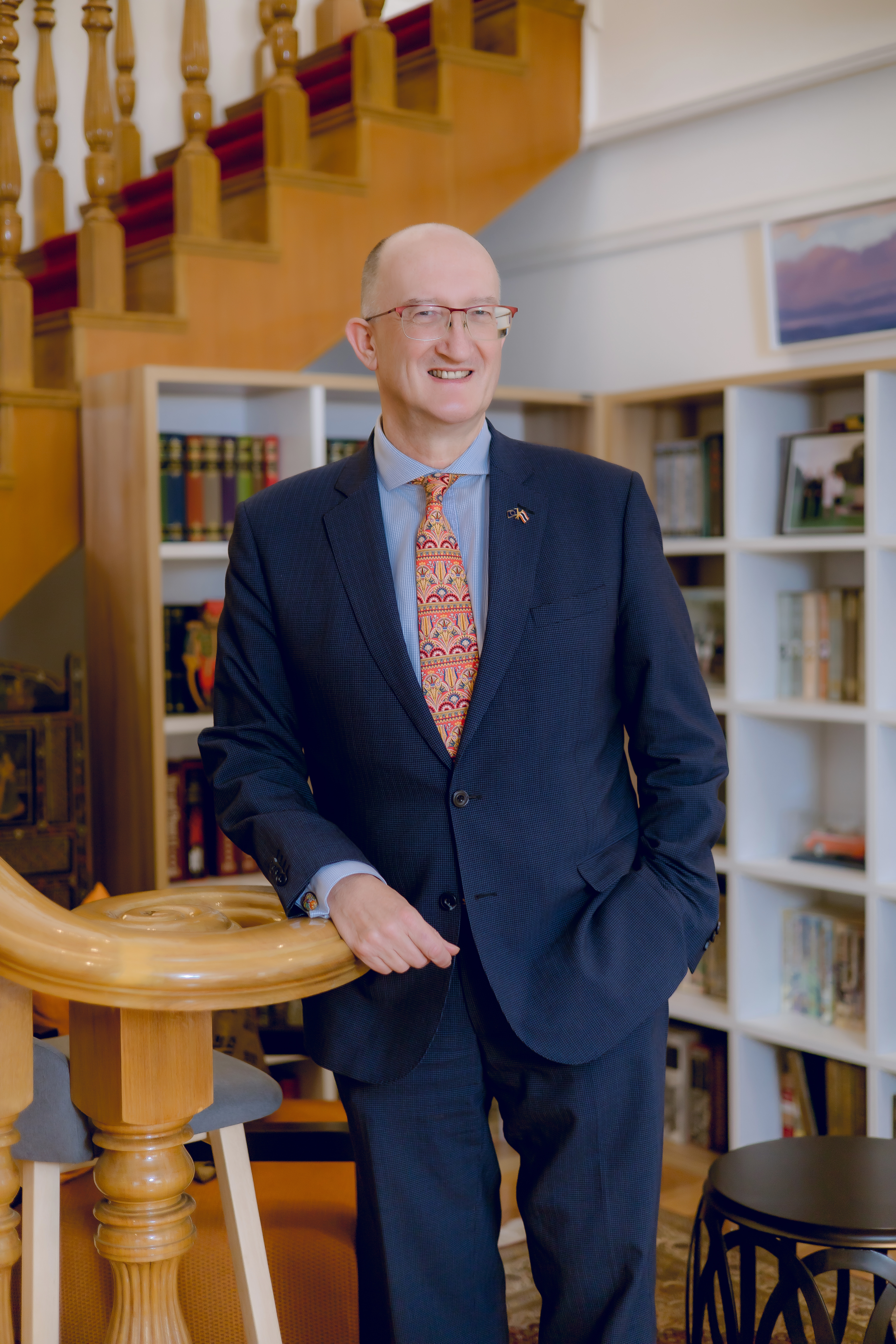
He further commented, “As diplomats, we are always working for the benefit and success of our successors. The work that I put in today is always an investment for the future. Anything that we achieve today is, firstly, a team effort from within the EU Delegation, linking the Delegation with our headquarters in Brussels while we are also a member of a wider team linking the Delegation with our Member States States' embassies here in Bangkok. Our present successes are based on work done by my predecessors.
Ambassador Daly is very proud that the EU and Thailand have had overall positive relations for over 60 years. He admitted, “Our political relations were frozen for a number of years because of the military take-over, but with Thailand’s path towards democracy in recent years, we have been able to re-engage at a political level.”
When asked about the free trade agreement (FTA), Ambassador Daly explained, “Firstly, even without the FTA, the economic relations between the European Union and Thailand are already very strong. Our trade amounts to around one billion Euro a week in goods and services. The EU is Thailand’s fourth most important trade partner and third in terms of investment. European investment in Thailand accounts for over 160,000 jobs. However, we are not content with just this and hope to achieve more. This is why we are negotiating the free trade agreement to increase the flow of trade and facilitate more investment. The European Union market is huge, with over 460 millions consumers. It is a big prize in any FTA negotiation. We started the negotiations in 2013 when an FTA was relatively straightforward, dealing mostly with tariffs and market access. However, in the decade since then, FTAs have become more comprehensive and ambitious. So today, FTA negotiations with the European Union also comprise trade in services, government procurement, intellectual property, trade and sustainable development.
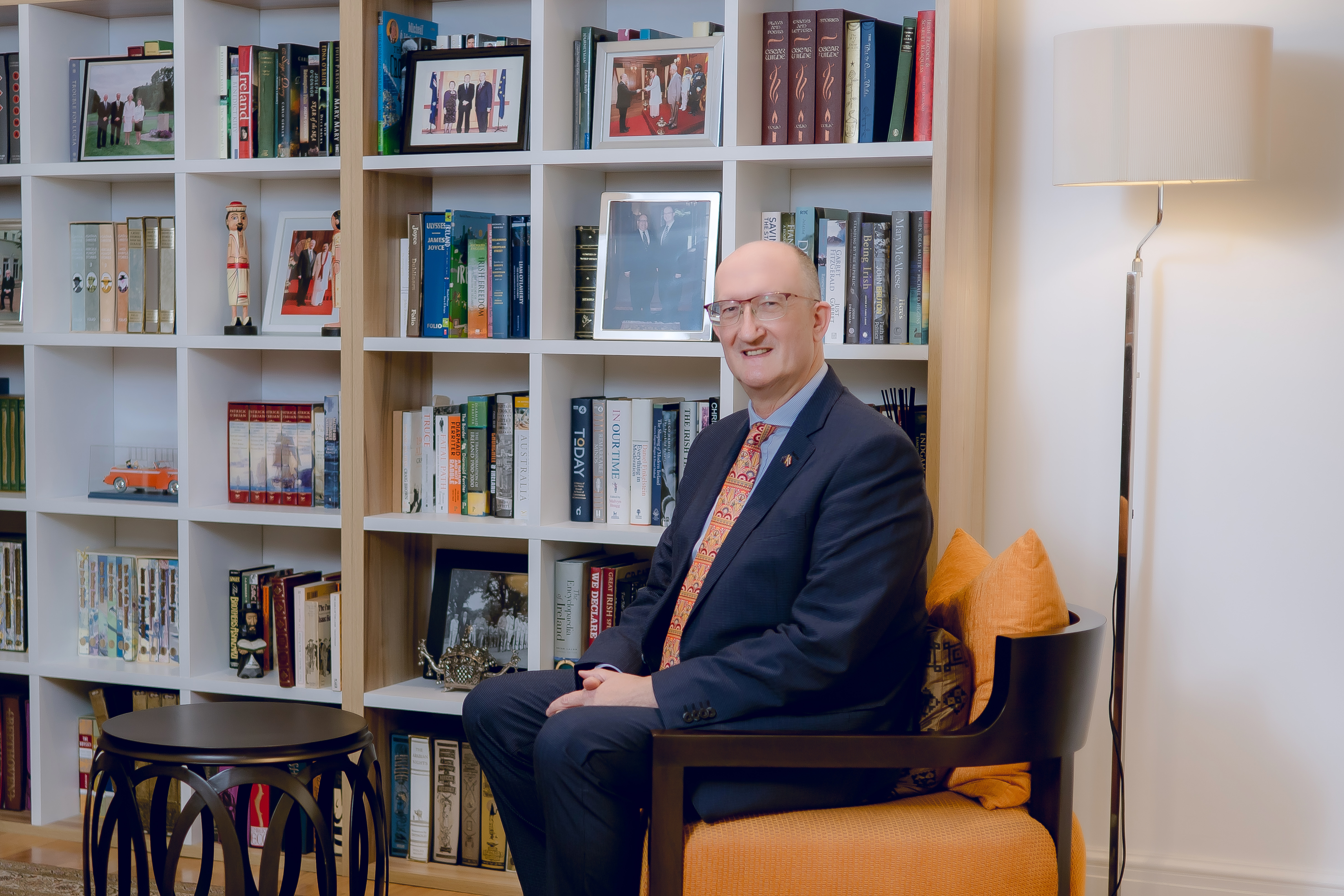
He went on to say, “With or without an FTA, there is domestic legislation in Europe that may play an incentive on countries around the world in areas such as climate change, deforestation and the sustainability of fisheries. The EU is also promoting human and labour rights as enshrined in the UN Charter and Conventions. In Bangkok, the EU Delegation invests a lot of time to explain EU legislations. We have had very healthy discussions between the Delegation and Thai stakeholders in the various topics. The FTA negotiations are conducted by our colleagues from the headquarters, and my job is to facilitate the process to help it go smoothly.
One very important issue for us is the new Partnership and Cooperation Agreement (PCA) that we signed just over a year ago that we hope will be implemented soon. This agreement is a politica restatement of many shared values between the European Union and Thailand. It will provide a better structure for regular senior level discussions across a wide range of policy areas such as climate change, trade, security and even people-to-people exchanges. Recently, there was a trade delegation from the European Parliament meeting with Thai parliamentarians and the Thai government.”
On the subject of Thai entrepreneurs interested in trade with or investment in the EU, Ambassador Daly explained, “Thai entrepreneurs should reach out to the individual countries they are interested in. The Thai embassies located in Europe are very helpful to Thai businessmen. What we do here, as the European Union Delegation, is help explain new EU legislation that might affect them. We organise seminars and workshops on these issues. What I do want Thai entrepreneurs to understand is that the European Union is a very open and highly competitive market.”
Ambassador Daly highlighted, “In June this year, we will hold elections throughout the Union for the European Parliament. We are fortunate to have a strong democratic culture based on different elements. Firstly, all members of the European Union are strong democracies with their citizens educated on such issues as elections and changes of governments. One of the EU’s prerequisites for membership is to be a democratic country. Then, these democratic countries come together and sit around a table at the Council in Europe to find solutions to problems at the European level and then vote on legislation. Thirdly, the European Parliament comprises over 700 Members (MEPs) who are directly elected by voters in their countries across Europe. The parliament is what we call a co-legislative body together with the Council. The Council is where Member State governments negotiate together. The Parliament comprises parliamentarians directly elected from every town and village across Europe. You could say, this is quite a unique democratic experiment, and the role of the Parliament has become stronger and stronger over time.
“It is interesting to note that the Members of the European Parliament come from all our Member States and organise themselves according to different political groupings based on their ideologies. There is a weighting for parliamentarians to protect the smaller member states.”
Ambassador Daly next reminisced about his arrival amid the Covid pandemic. “First, I would like to congratulate the Thai people and government for their resilience and emergence from the Covid period. The pandemic, for all of us, including in Europe, was a unique challenge. It was one that was unforeseen in many ways, at first because of our lack of knowledge. Hence, there was a lot of trial and error. As for the European Union, we are very proud of the fact that around half of all of the vaccines produced in the EU were exported outside of the EU to the benefit of countries around the world. We are also very proud of the fact that the European Union was one of the major funders of the system called COVAX, which was a global system designed to take vaccines from developed countries and make them more accessible to less developed countries. The system has assisted many countries really in need that do not have the economic weight to buy the vaccines. The European Union was a major funder of COVAX to combat this unprecedented health challenge which struck the entire world. There are a lot of lessons that we have learned from the pandemic. We should feel proud of many of the things that we rightly implemented. Many of these challenges, of course, were at the national level, with each country having to find their own way through it. Europe, having the European Union was very helpful as we already had the table set up where we could sit and discuss such questions as, ‘What are we going to do about Covid? How can we help? What can we do about countries outside of Europe? How can we help the rest of the world?’ Our actions were a strong expression of solidarity between Europe and developing countries.”
As our interview drew to a close, Ambassador Daly emphasized, “I am mindful that when we look at the tourism sector here in Thailand, which is an important contributor to the Thai economy, the European Union is ranked third, after Malaysia and China. I feel very honoured to have been posted to Thailand and hope that the Thai-EU Free Trade Agreement negotiations will continue smoothly for the benefits of both the European Union and Thailand.”
